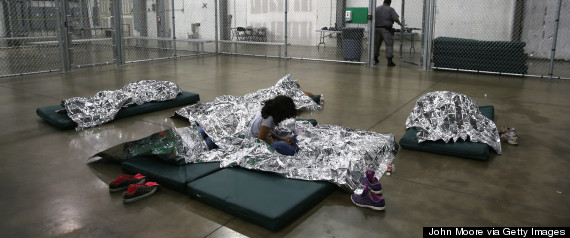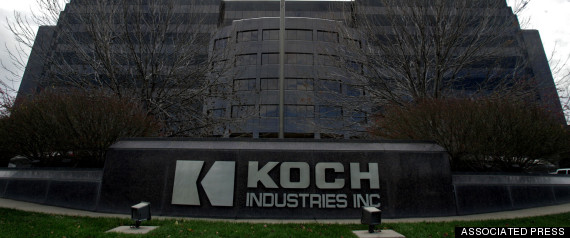WASHINGTON -- The 2014 midterm elections have been described as among the nastiest and most negative in modern memory. They're also the most expensive. The Center for Responsive Politics estimates that the total price tag for the 2014 election cycle will be at least $3.7 billion -- a sum that includes cash from individual contributors, dark money groups, party committees and political action committees.
In fairness, the stakes are high. Majority control of the Senate hangs in the balance, with voters in 36 states going to the polls Tuesday to elect a senator. Still, that $3.7 billion -- much of which has come, directly or indirectly, via billionaires and thinly veiled corporate interests enjoying the liberties of a post-Citizens United world -- could be spent in a lot of other ways, some of them very worthwhile. Here's what else we could do with $3.7 billion or less.
1. Fight Ebola. Total federal spending on Ebola research dropped from $59 million in 2006 to $42.5 million in 2013, according to Bloomberg News.
Congress recently released an additional $750 million to combat the deadly epidemic, which has claimed nearly 5,000 lives in West Africa. Still, the new allocation plus the existing funding adds up to less than a quarter of the midterms' $3.7 billion price tag.

2. Address the crisis of unaccompanied minors at the border. As it happens, the Obama administration requested $3.7 billion this summer to safely and humanely handle the influx of unaccompanied minors entering the U.S. from war-torn Central American countries. Republicans in the House approved just $659 million -- less than one-fifth of what was requested -- and did so only on the condition that anti-trafficking laws be updated to make it easier to deport children from the United States. As of Tuesday, two competing bills to address the humanitarian crisis remained stalled in the House and Senate.

3. Carry out the Endangered Species Act. Credited with saving the bald eagle and the gray wolf from extinction in the United States, the Endangered Species Act cost $1.7 billion to administer in 2012.

4. Fund the entire federal arts and culture budget. This is the money that funds everything from the Smithsonian Institution to the Corporation for Public Broadcasting to the Holocaust Museum. For 2013, the arts and culture budget expanded from $1.5 billion to $1.57 billion -- still less than half of what the 2014 midterms have cost.

5. Feed 2 million Syrian refugees. The U.N. World Food Program needs $352 million before the end of the year to keep Syrian refugees from starving, "as it has completely run out of funds," as an Agence France-Presse report puts it. For those keeping score, $352 million = less than 10 percent of $3.7 billion.

6. Fund a landmark bill to prevent violence against women. The Violence Against Women Act (VAWA) was reauthorized in 2013, allocating $1.6 billion in funding for a number of services, including domestic and sexual violence prevention efforts and hotlines and crisis centers for victims.

7. Save Brazil's Atlantic rain forest. Only 8 percent of the original Atlantic rain forest, one of the world's most threatened ecosystems, remains in eastern Brazil. Researchers estimate it would cost $600 million over three years in order to preserve the region's biodiversity.

Of course, if saving the world isn't your thing (and there's nothing wrong with that), here are a couple more ways to spend $3.7 billion.

8. Buy a few NFL franchises. Earlier this year, after businessman Terry Pegula purchased the Buffalo Bills for $1.4 billion, Forbes magazine estimated that the Carolina Panthers, rumored to be for sale, could fetch up to $1.7 billion.
9. Contribute 3 percent to the annual sales of Koch Industries. That's right, the oil refinery conglomerate owned by billionaire brothers and conservative mega-donors Charles and David Koch reported $115 billion in annual revenue in December 2013, according to Forbes.
The success of Koch Industries, America's second-largest privately held company, has enabled the brothers to build an unparalleled network of conservative political and nonprofit groups. Aided by like-minded donors, the Koch-backed network is on track to spend over $400 million influencing this election.

Sam Stein, Laura Bassett, Mike McAuliff, Kate Sheppard, Nick Wing and Igor Bobic contributed reporting.
